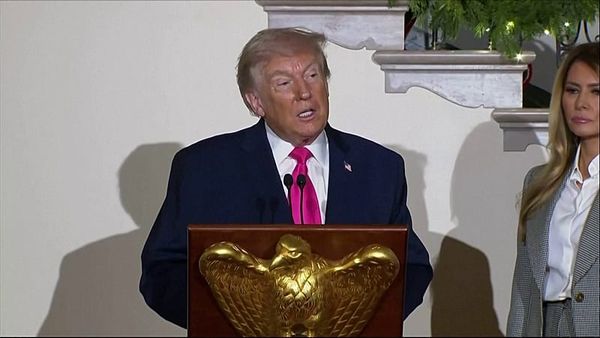
Kwasi Kwarteng’s inept handling of the government’s finances since he took office last month has left Liz Truss cornered. The prime minister must play for time and piece together a rescue plan by the end of November, along with a more rounded budget that preserves her tax-cutting agenda while also appearing responsible to financial markets watchful for the next misstep.
Treasury officials, rudderless after the departure of two permanent secretaries (Tom Scholar and deputy Charles Roxburgh) in the space of four months, will be under pressure to find a formula that also satisfies the cautious instincts of the government’s independent economic forecaster, the Office for Budget Responsibility (OBR), which is inclined to dismiss policy “quick wins” as ineffectual until evidence proves otherwise.
Under pressure from backbench MPs, Truss’s team must first take in hand a politically naive chancellor who, left to his own devices in the week before the mini-budget, loaded the list of proposals with measures going beyond anything previously signalled to the City.
Kwarteng will want to claw back the credibility he has squandered, but may find that difficult when his lack of political and financial acumen, and especially his failure to judge the market reaction to a spending spree in the midst of an already difficult economic situation, leaves him almost friendless among economists and the institutions that hold sway in these matters, chief among them the OBR.
Colleagues say he is listening to advice as he searches for a way through the wreckage. But with mortgage rates soaring, pension funds at risk and the pound vulnerable to speculators the next time there is bad economic news, Kwarteng’s legacy, after just seven days of active management, needs an urgent corrective.
Monetary policy
The job of the Bank of England, which since 1997 has had the statutory task of hitting the inflation target set by the government – currently 2%.
Fiscal policy
The Treasury is responsible for fiscal policy, which involves taxation, public spending and the relationship between the two. 'Fiscal easing' is when plans for tax cuts not are not matched by planned spending cuts.
Budget deficit
The gap between what the government spends and its tax revenues
Government debt
The sum of annual budget deficits – and the less frequent surpluses – over time.
Government bonds
In the UK these are known as gilts, and are a way the state borrows to finance its spending. The fact that governments guarantee to pay investors back means they are traditionally seen as low risk. Bonds mature over different timescales, including one year, five years, 10 years and 30 years.
Bond yields and prices
Most bonds are issued at a fixed interest rate and the yield is the return on the capital invested. When the Bank of England cuts interest rates, the fixed return on gilts becomes more attractive and prices rise. However, when interest rates rise gilts become less attractive and prices fall. Therefore when bond prices fall, bond yields rise, and vice versa.
Short- and long-term interest rates
Short-term interest rates are set by the Bank of England’s MPC, which meets eight times a year. Long-term interest rates move up and down with fluctuations in gilt yields, with the most important the yield on 10-year gilts. Long-term interest rates affect the cost of fixed-rate mortgages, overdrafts and credit card borrowing.
Quantitative easing and quantitative tightening
When the Bank of England buys bonds it is called quantitative easing (QE), because the Bank pays for the bonds it is purchasing by creating electronic money, which it hopes will find its way into the financial system and the wider economy. Quantitative tightening (QT) has the opposite effect. It reduces the money supply through sales of assets.
Pension funds and the bond markets
Pension funds tend to be big holders of bonds because they provide a relatively risk-free way of guaranteeing payouts to retirees over many decades. Movements in bond prices tend to be relatively gradual, but pension funds still take out insurance – hedging policies – as protection to limit their exposure. A rapid drop in gilt prices can threaten to make these hedges ineffective.
Margin calls
Buying on margin is where an investor or institution buys an asset through a downpayment and borrows money to cover the rest of the cost. The upside of margin trading is that it allows big bets and higher returns when times are good. But investors have to provide collateral to cover losses when times are bad. In times of stress they are subject to margin calls, where they have to find additional collateral, often very quickly.
Doom loop
This is where a financial crisis starts to feed on itself, because institutions are forced into a fire sale of their assets to meet margin calls. If pension funds are selling gilts into a falling market, the result is lower gilt prices, higher gilt yields, bigger losses and further margin calls.
Fiscal dominance
This is where the Bank of England is prevented from taking the action it thinks is necessary to combat inflation because of the size of the budget deficit being run by the Treasury. Fiscal dominance could take two forms: the Bank might keep interest rates lower than they would otherwise be, in order to reduce the government’s interest payments on its borrowing, or it might involve covering government borrowing by buying more gilts.
Larry Elliott Economics editor
Any attempt to reverse the tax cuts announced in the mini-budget appears to have been ruled out. The reduction in national insurance payments, the 1p cut in income tax, freezing corporation tax at 19% and even the abolition of the 45p top rate of income tax, benefiting those earning more than £150,000, will all stay. And failed policies of the past, billed as “supply-side reforms” that Kwarteng says will deregulate the markets and create a vibrant business sector, will remain.
Investment zones, offering discounted rents and five years of business rates exemption, are also among the many empty economic wells that the chancellor seems convinced still hold a fortifying elixir. They are not a new idea: similar schemes were devised during the Margaret Thatcher and John Major governments, and most recently under the chancellorship of George Osborne. In 2011, Osborne created 24 such zones around the country.
Analysis by the Centre for Cities thinktank found that, six years later, they had created only a quarter of the jobs estimated by the Treasury; and of those jobs, a third resulted from “a move of businesses from elsewhere, rather than the creation of new posts in new businesses”.
Deregulation of the City will remain another pillar of Kwarteng’s crusade, despite last week’s drop in the value of government bonds, which revealed that one of their biggest buyers, UK pension funds, were at risk of massive losses from exotic insurance products they purchased as a form of protection.
It became clear when several pension funds raced to fill holes in their finances with a fire sale of assets, that they were unaware a British chancellor, Labour or Conservative, would ever be so reckless as to spark panic selling of government debt.
Both Chris Philp, the chief secretary to the Treasury and Kwarteng’s number two, and levelling-up minister Simon Clarke have this weekend signalled that cuts to Whitehall spending and welfare benefits will be sought to balance the books.
Austerity 2.0 is their answer, most likely combined with a relaxation of government spending rules to allow greater flexibility during a downturn. Will the OBR play along? Will the markets? According to one economic consultancy, the extent of losses from the corporation tax cut are overdone. The EU’s tough re-organisation of the European gas market could also see prices tumble over the next six months, reducing the cost of the government’s energy price cap.
If that happens, Kwarteng will be a lucky chancellor. The question is can he – and the prime minister – last that long?







